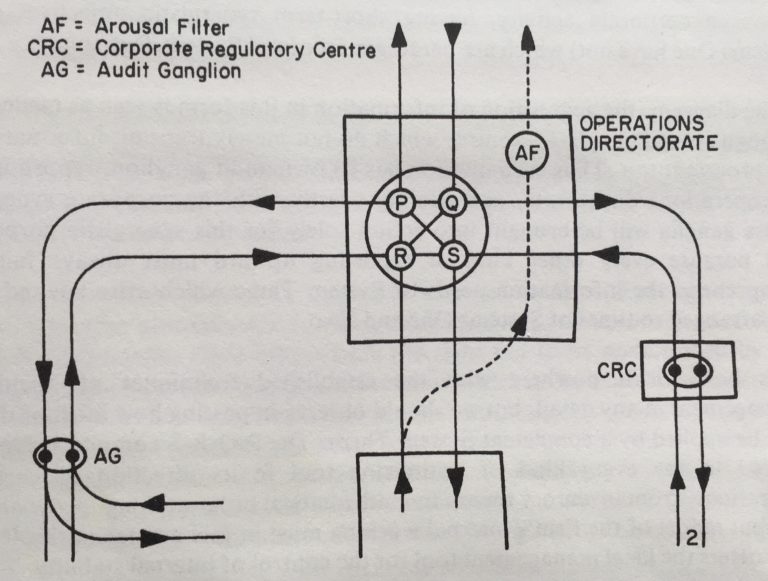In the context of the course “Postcapitalist Trajectories”, Diego Gomez Venegas will give a lecture on Project Cybersyn’s legacy. The talk aims to present a glimpse of the conditions of possibility (CP), the governing principles (GP), and the techno-epistemic reverberations (TER) that connect or emerge from project Cybersyn. In other words, the case’s past, its present, and potential future.
Project Cybersyn was a network of telecommunications and a system for statistical computation developed and implemented in Chile between 1971 and 1973, as part of the socialist reforms deployed by Salvador Allende’s government. Aiming to optimize and control the industrial economy of the country under cybernetic principles, its designer and scientific director was the British cybernetician of management Stafford Beer.
While the case has been already studied from a media-historical perspective (Pias 2004, 2005; Vehlken 2004), as well as from the social studies on science and technology (Medina 2005, 2006, 2011; Pickering 2010), this research argues that a media-archaeological approach that is merged with a media-genealogical gaze, can bring about a more-than- historical and more-than-anthropocentric perspective that, in turn, will reveal so far non-problematized aspects of the project: in general, the flows of power/knowledge – as a single complex – that informed, constituted, and emerged from it.
Accordingly, for each of the stages – CP, GP, and TER – the talk aims to tackle one aspect, namely, i) Francisco Varela’s mathematico-machinic approach to the living; ii) Stafford Beer’s Viable System Model; and iii) Beer’s Cybernetic Model of Contemporary Capitalism – which may connect to Chile’s present.
Tuesday, 15 February 2022, 6 pm. Online.
To register and receive the link write to:
Max Grünberg mrgruenberg (at) hfg-karlsruhe.de
Diego Gómez-Venegas is a media researcher and media artist based in Germany. With an ongoing focus on cybernetics history and its epistemology, Diego develops a long-term research aiming at tracing both the techno-epistemological and techno-political relevance of such a period. Currently, Diego works in his doctoral research on Chile’s project Cybersyn, which he develops at Humboldt University of Berlin under the supervision of Wolfgang Ernst and Hans-Christian von Herrmann.

